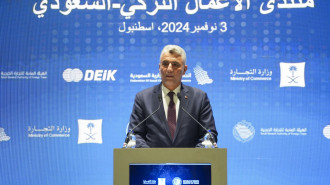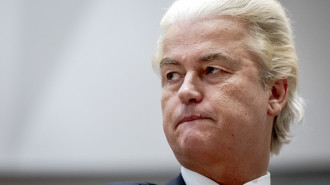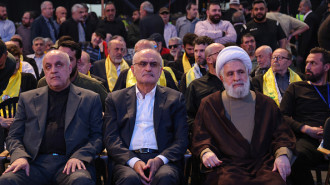Shells hit Syria's Sweida for first time in three years
The regime controls most of Sweida province, but opposition fighters still control much of nearby Daraa and Quneitra governorates.
On Tuesday, the Syrian Observatory for Human Rights said opposition forces fired shells into Sweida city, "which led to loud blasts but no casualties".
State news agency SANA also blamed rebels "spread out in the towns and villages in eastern parts of Daraa province" for firing shells on Sweida.
Sweida, whose residents are mostly from the Druze minority, has remained relatively insulated from seven years of war that has ravaged the rest of the country. But rebels hold a sliver of territory in western Sweida that borders their main bastion in the province of Daraa, and clashes and exchanges of fire have erupted in that area in recent days.
Twitter Post
|
The Syrian regime has turned south after capturing the capital Damascus and its surrounding areas earlier this year for the first time since the war's outbreak in 2011. They have been dispatching troops and equipment to Sweida for weeks.
Separately, the regime on Tuesday dropped new flyers on Daraa city, calling on residents to expel the rebels "like your brothers did in Eastern Ghouta and Qalamoun," referring to two areas near Damascus.
Opposition fighters were concerned that the regime would justify an assault on Sweida to protect the region's Druze community. They released a message addressed to them on Tuesday.
"We call on our people in Sweida province not to serve as bait for the goals of the regime, sectarian militias from Iran, and Hezbollah, which are trying to occupy this land and divide its people," they said in a statement.
Syria's President Bashar al-Assad has said he would pursue a political settlement in Sweida, but also last week warned "if that doesn't succeed, we have no other option but to liberate it by force".
The Syrian war began in 2011 when the regime responded violently to protesters. More than 350,000 people have died since, mostly at the regime's hands, and millions more displaced internally or made refugees.
Follow us on Twitter: @The_NewArab







 Follow the Middle East's top stories in English at The New Arab on Google News
Follow the Middle East's top stories in English at The New Arab on Google News


